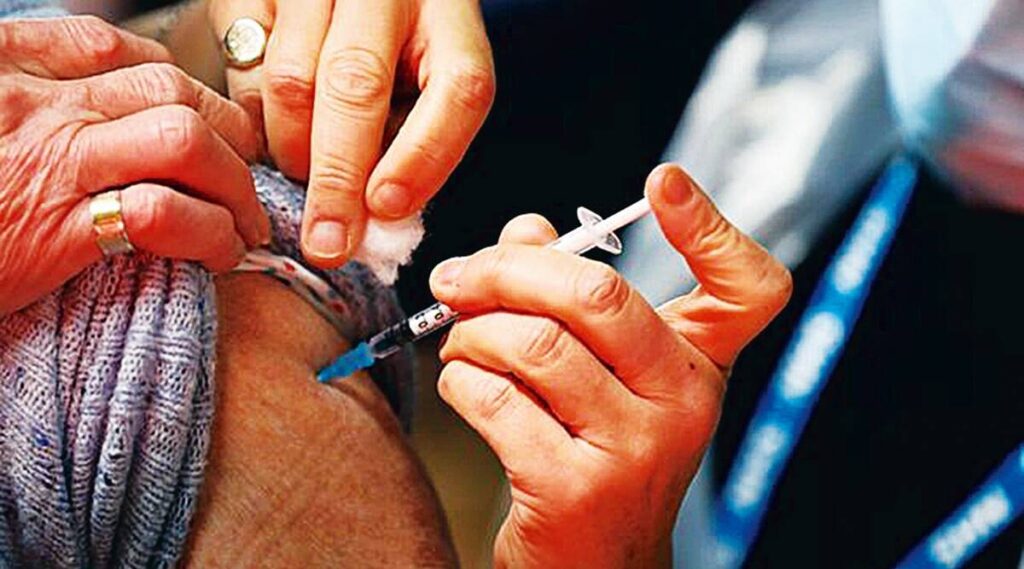
The Union ministry of health and family welfare announced on Sunday that nearly 120 million vaccine doses will be available for the national Covid vaccination programme in June, even as both companies supplying the vaccines are looking to increase their production capacity to 110-120 million doses from the current 75-80 million.
As part of a free supply from the federal government, at least 60 million (60,960,000) doses of Covid-19 vaccine will be distributed to states and union territories for vaccination of priority groups such as health care workers (HCWs), frontline workers (FLWs), and people aged 45 and up. Aside from that, nearly 59 million vaccine doses (58,610,000) will be available for direct purchase by states and private hospitals.
“In June 2021, close to 120 million (119,570,000) doses will be available for the national Covid-19 vaccination programme… Vaccination is an integral pillar of the comprehensive strategy of the government of India for containment and management of the pandemic, along with test, track, treat and Covid-appropriate behaviour. As part of the nationwide vaccination drive, the government of India has been supporting the states and UTs by providing them Covid-19 vaccines free of cost,” the health ministry said in a statement.
The ministry, on the other hand, did not provide a state-by-state breakdown of the number of vaccine doses allotted in June. According to reports, Adar Poonawalla, the CEO of the Serum Institute of India, informed Union Home Minister Amit Shah that the company would increase vaccine production by 90-100 million doses in June.
The Oxford-AstraZeneca Covid-19 vaccine is manufactured locally by SII under the brand name Covishield.
The ministry of science and technology also announced on April 16 that it would help double the production capacity of India’s first make-in-India Covid-19 vaccine, Covaxin, from 10 million doses per month to 20 million doses per month by May-June 2021. Covaxin was co-developed by Bharat Biotech and the Indian Council of Medical Research.
The allocation of supplies to states and union territories through the government of India channel is based on consumption patterns, population, and vaccine wastage. To ensure better planning and delivery of vaccines, supply details are shared in advance for 15/30 days.
“The supplies are being fast ramped up by the manufactures, so more vaccine doses will be available in weeks to come. The doses need to be effectively distributed also at the state level keeping the current supply scenario in mind. The priority has to be covering the country’s high-risk population — health care, and frontline workers, and those above 45 years of age,” said a senior central government official, requesting anonymity.
From May 1 this year, 50% of the available doses are being earmarked for the states as free of cost supply from the government of India channel, while the remaining 50% is available for direct procurement from manufacturers by the states and private hospitals under the Centre’s “Liberalized Pricing and Accelerated National Covid-19 Vaccination Strategy” .
“Visibility for availability of vaccines for the entire month of June 2021 has been provided well in advance to States/UTs by Union Government as communicated to States and UTs vide letters of Union Health Ministry dated 17th May 2021, 27th May 2021 and 29th May 2021… States have been requested to direct the concerned officials to ensure rational and judicious utilization of allocated doses and minimize the vaccine wastage,” the health ministry statement said.
The states will also be informed in advance of the delivery schedule for the current batch of supplies. In May, the national Covid vaccination programme had a total of 79 million (79,405,200) doses available, with the Centre providing 40 million (40,349,830) doses free of charge to the states. Furthermore, 39 million doses (39,055,370) were available for direct purchase by states and private hospitals.
“All vaccines are effective in reducing severity of the disease, and death; therefore, it is important to vaccinate people as fast as possible, especially the country’s vulnerable population,” said Dr GC Khilnani, former head of the pulmonology and sleep medicine department at the All India Institute of Medical Sciences, Delhi.








